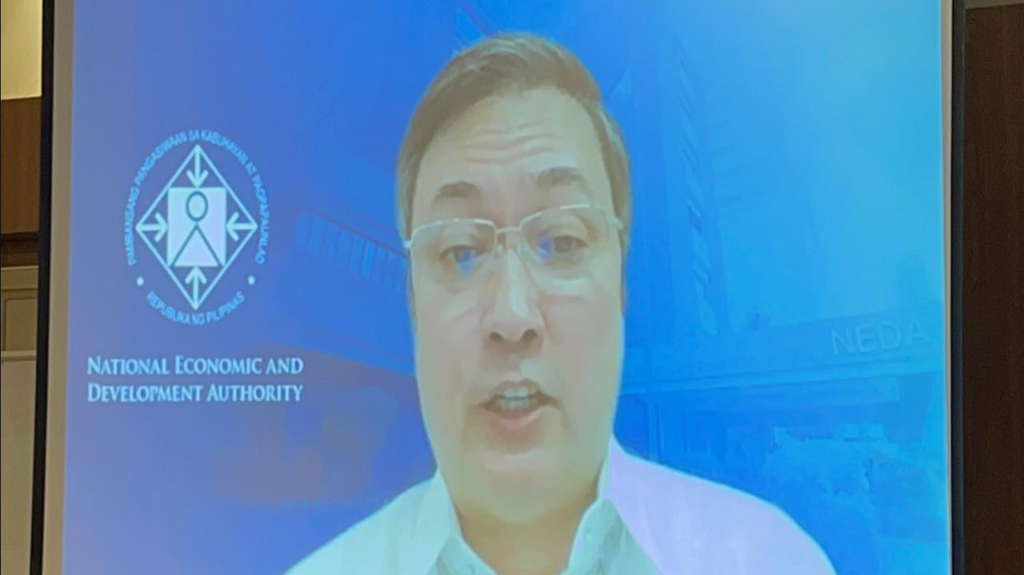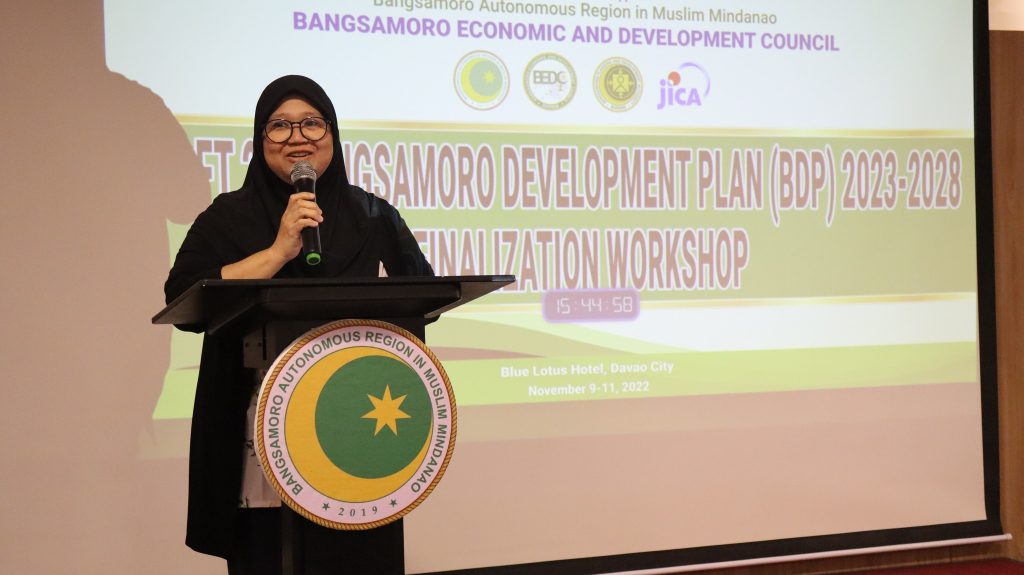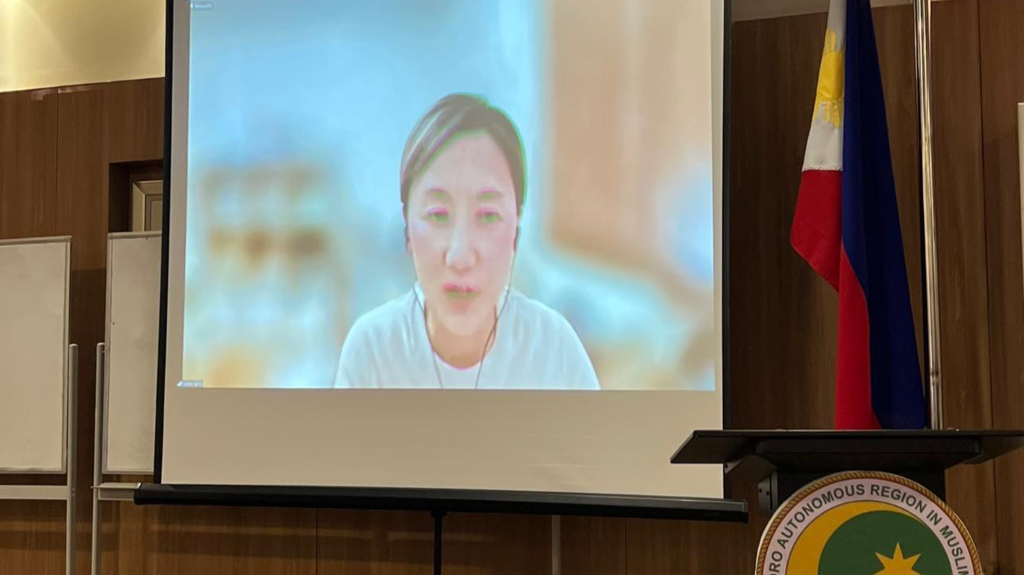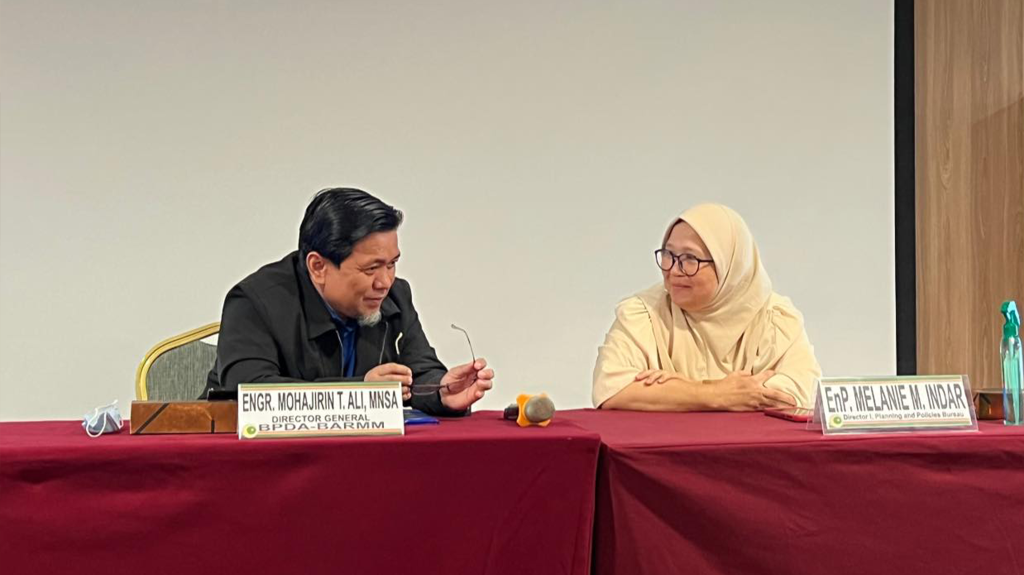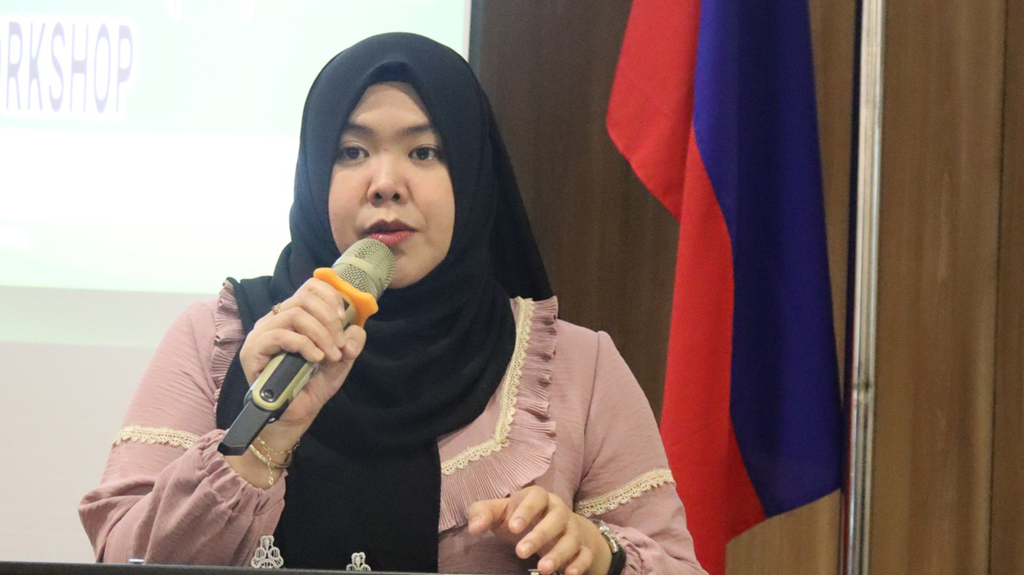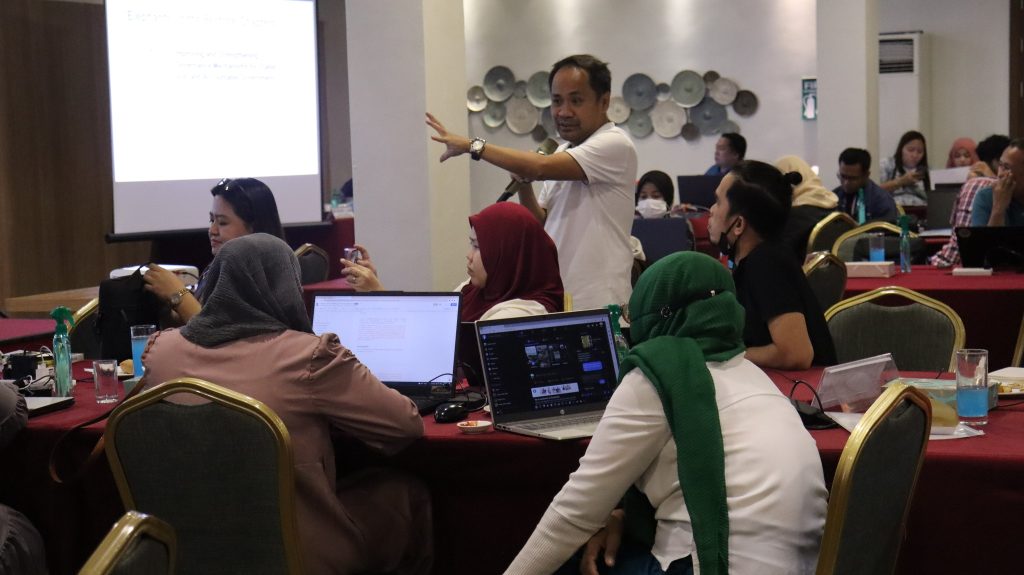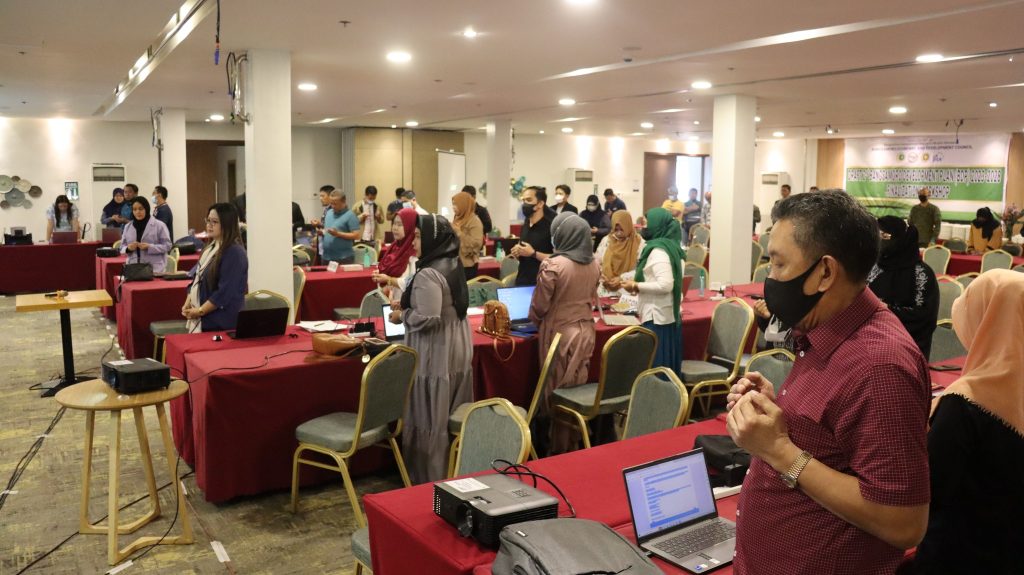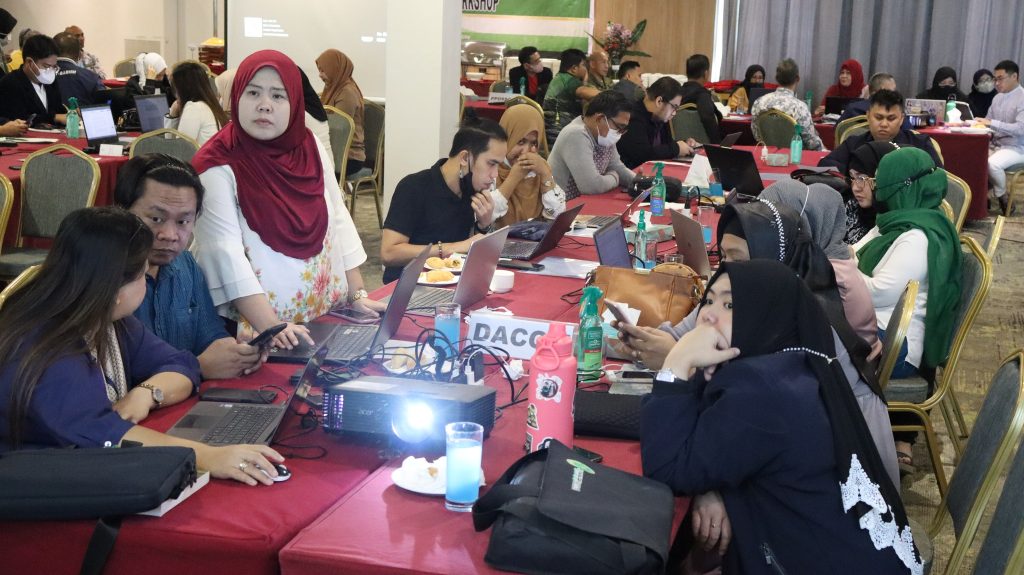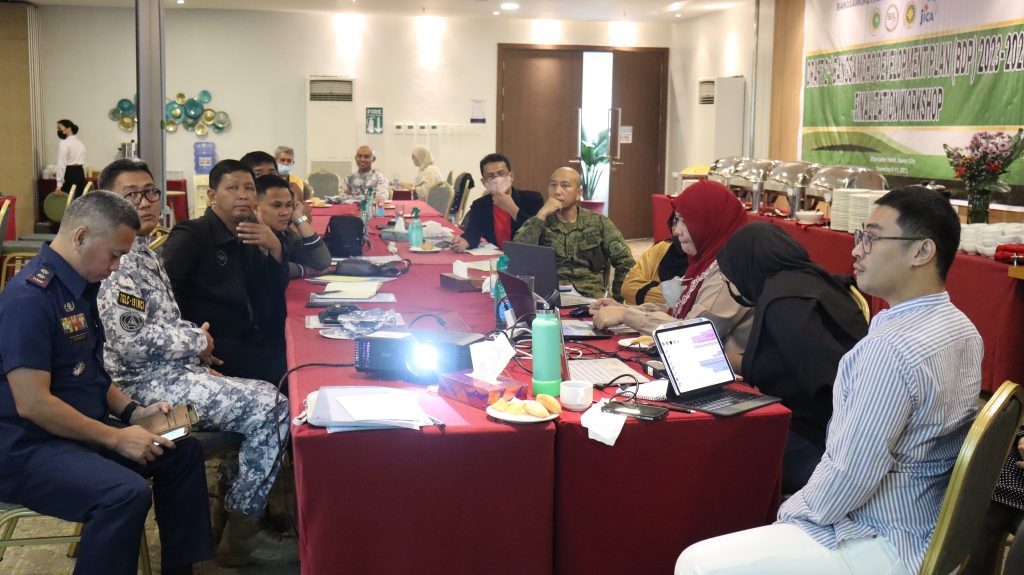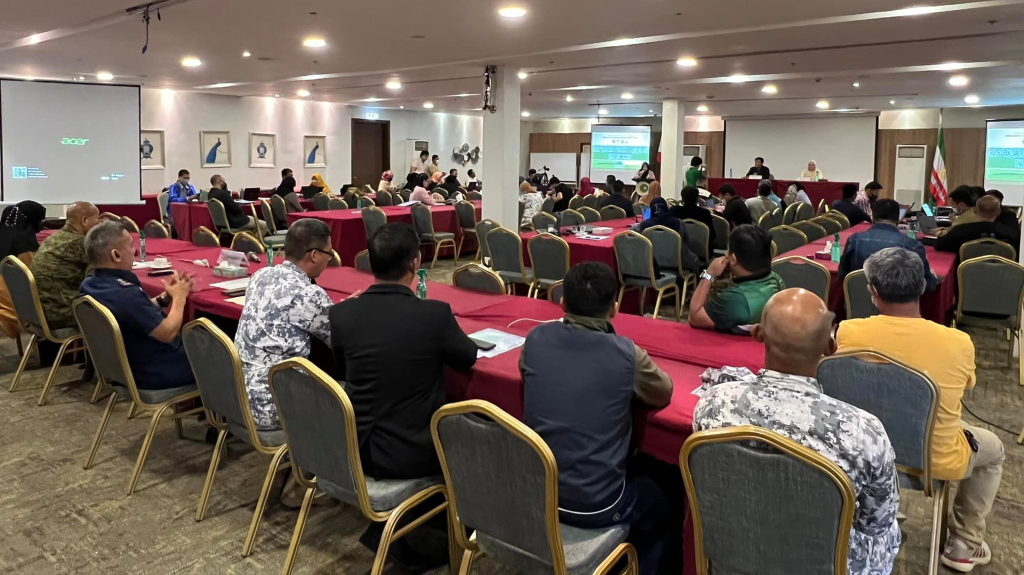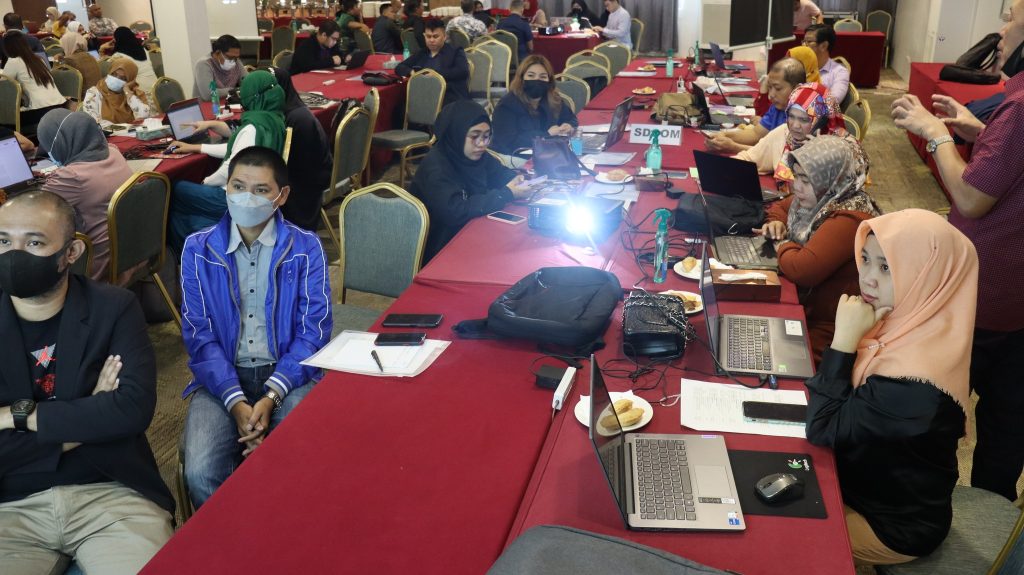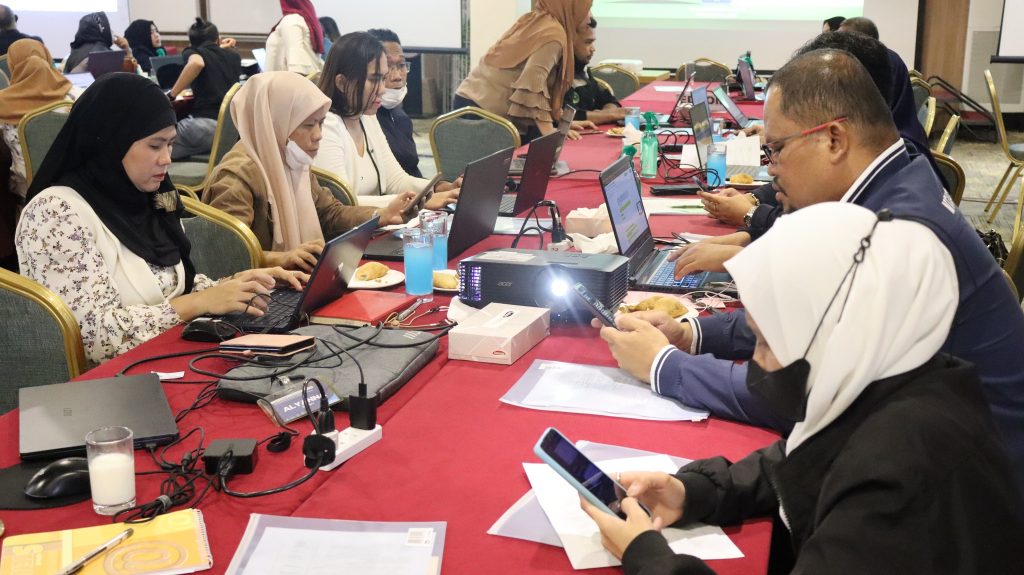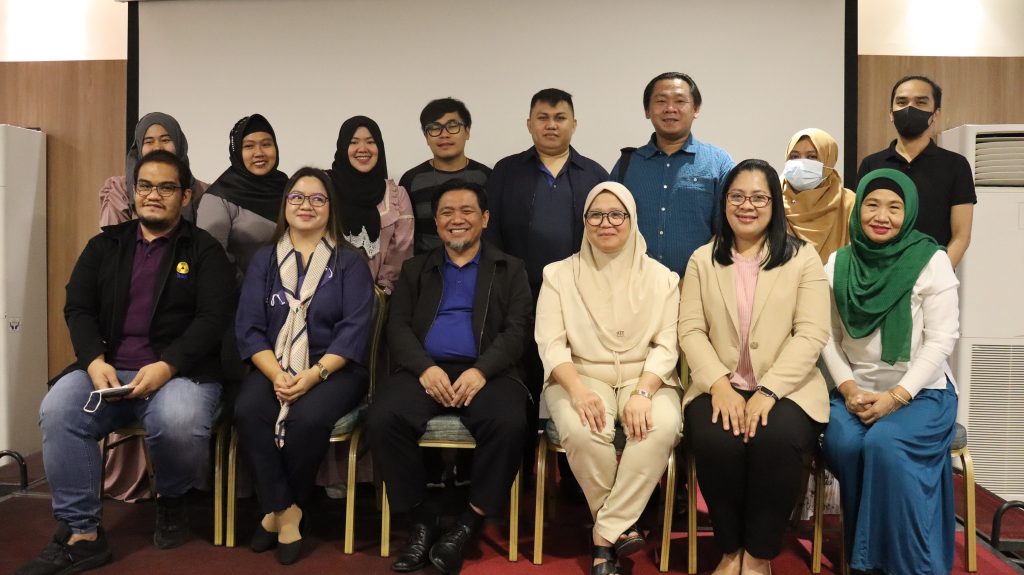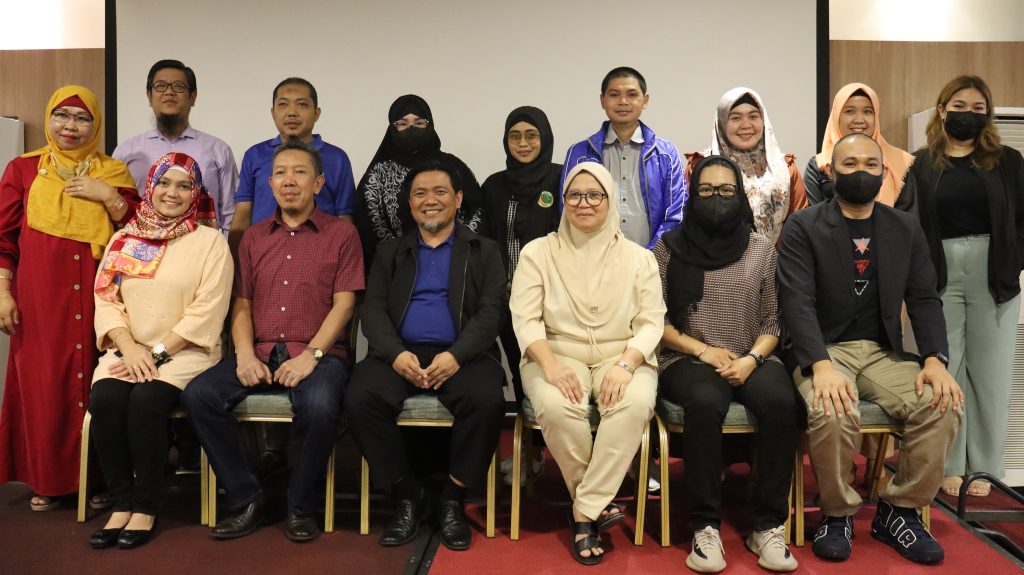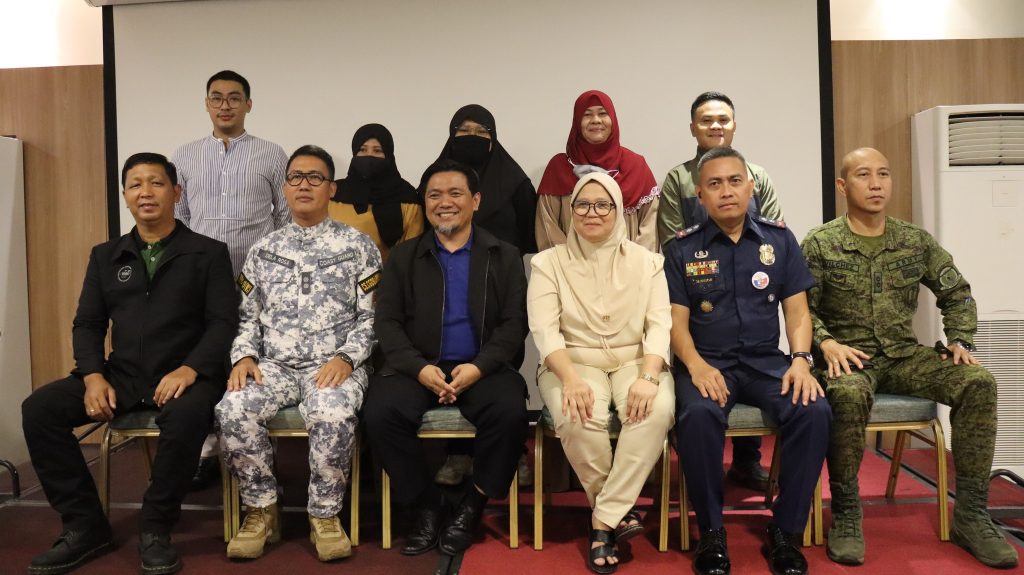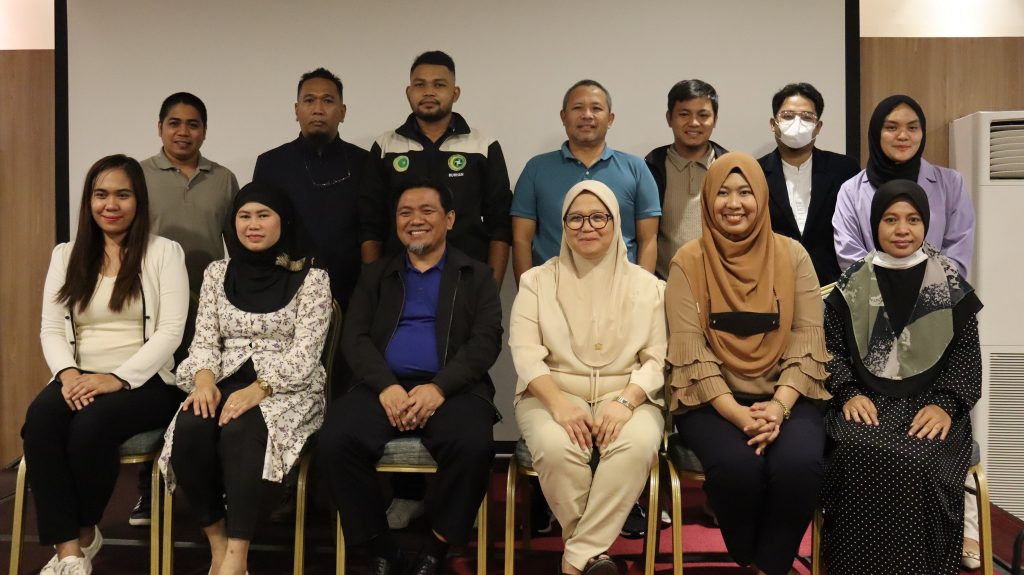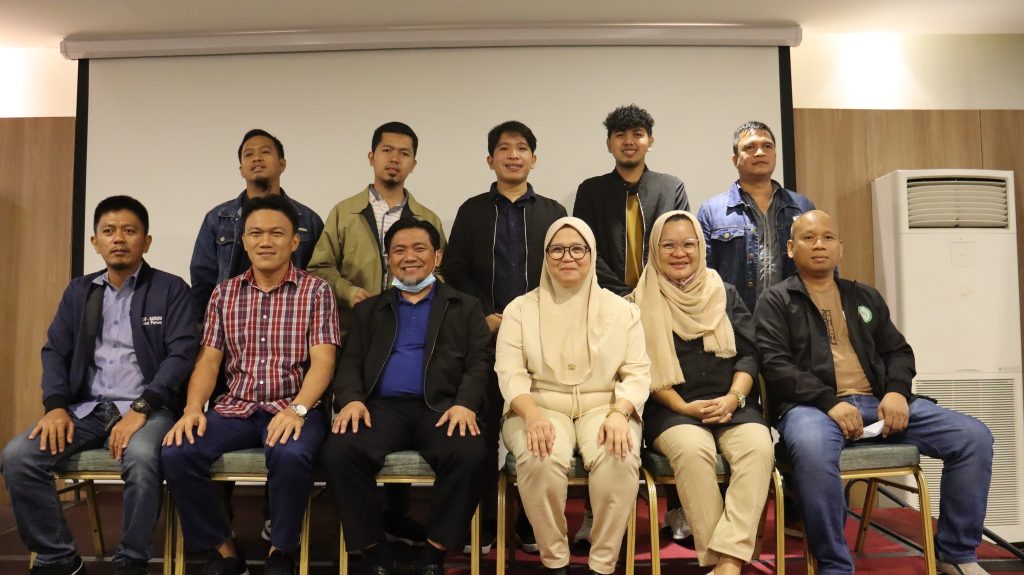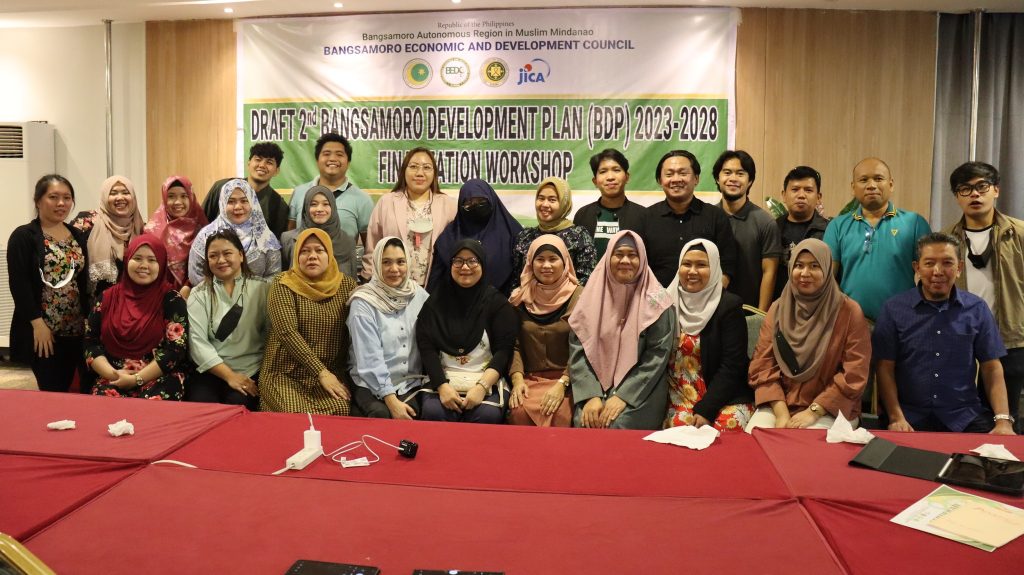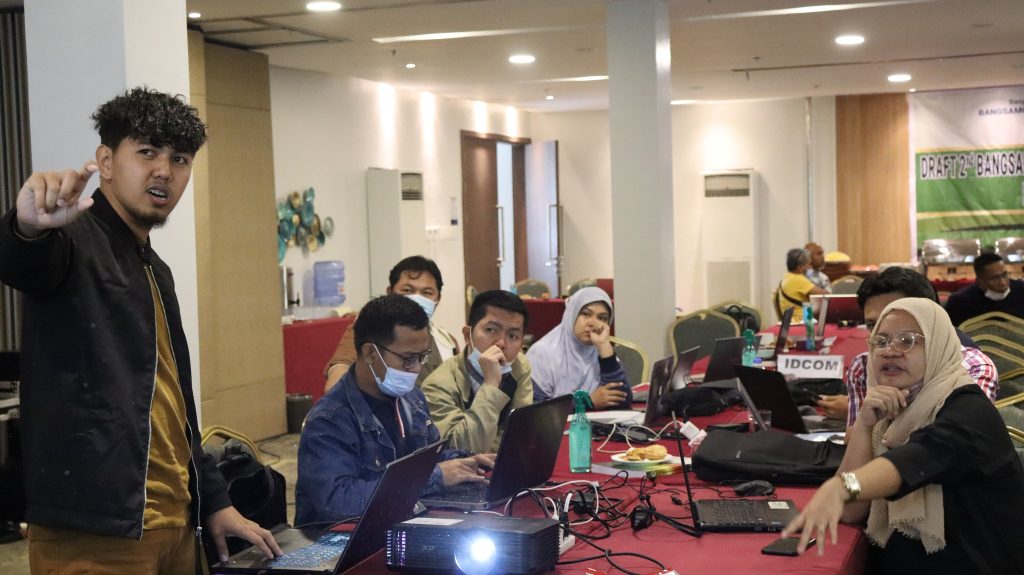
DAVAO CITY, Philippines – Following the integration of sectoral outputs in the draft 2nd Bangsamoro Development Plan (BDP) 2023-2028, the Bangsamoro Planning and Development Authority (BPDA) spearheaded the finalization of the said plan during the three-day workshop on Wednesday until Friday, Nov. 9-11 at Blue Lotus Hotel in this city.
Among the participants were representatives of the ministries, offices, and agencies (MOAs) who are members of the Development Administration Committee chaired by the Ministry of Interior and Local Government (MILG), Peace, Public Order, Safety and Security Committee chaired by the Ministry of Public Order and Safety (MPOS), Economic Development Committee chaired by the Ministry of Agriculture, Fisheries and Agrarian Reform (MAFAR), Social Development Committee chaired by the Ministry of Social Services and Development (MSSD), and Infrastructure Development Committee chaired by the Ministry of Public Works (MPW).
In partnership with the Japan International Cooperation Agency (JICA), this workshop aimed to present the draft 2nd BDP to the five sectoral committees for review, analysis, and finalization of the chapter’s content assigned in each sector.
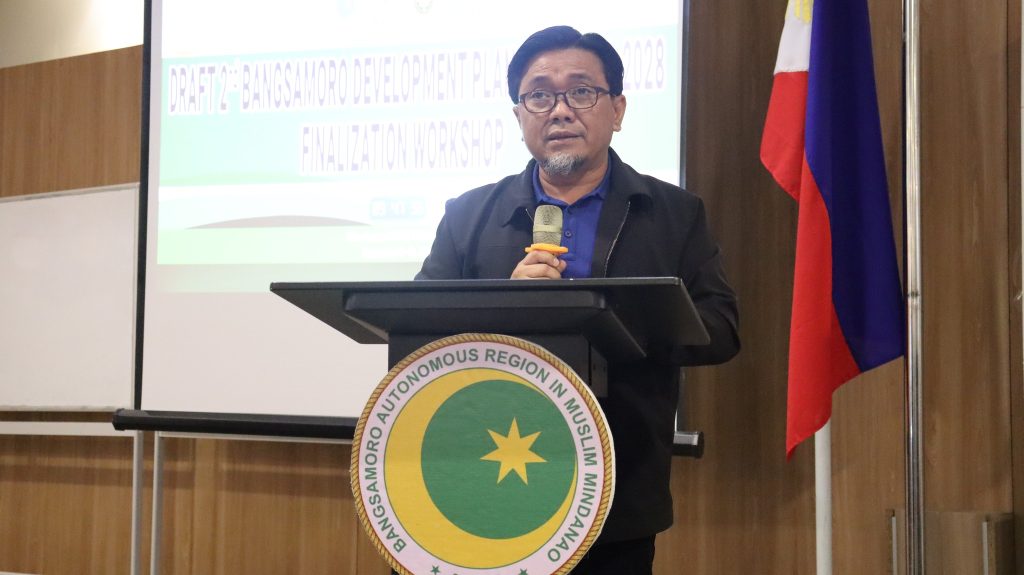
In his message, BPDA Director General Engr. Mohajirin T. Ali said that multiple activities have been conducted as part of the plan’s formulation process such as workshops, consultations, and write shops.
“The conduct of the aforementioned activities was indeed essential to be able to come up with an inclusive plan that is supportive to the BARMM – the autonomous regional government, provincial/city/municipal local government units, our people, and all our stakeholders,” he shared.
BPDA completed the region-wide consultation with 5 provincial governments, 3 city governments, 75 municipal governments, 142 barangay governments, 49 civil society organizations (CSOs), 6 academic institutions, and 5 private sector organizations in the mainland and island provinces of the BARMM on September to October 2022.
DG Ali underscored that the region-wide consultation was one of the most challenging stages in the plan’s formulation process as the regional government went down to provinces, cities, and municipalities to get firsthand information and recommendations from different local government units (LGUs) in the region. He also emphasized that it ensures hearing the voices of the LGUs, CSOs, academic institutions, and the private sector.
“This further signifies our utmost and purest intent of integrating their ideas, proposals, and recommendations in this development plan, but still, it is subject for our review and assessment,” he stressed.
Carlos Bernardo O. Abad-Santos, Undersecretary for Regional Development Group of the National Economic and Development Authority (NEDA), presented the salient features of the Philippine Development Plan (PDP) 2023-2028, capturing the headline targets, 8-Point Socioeconomic Agenda, PDP 2023-2028 Strategic Framework, and key transformation strategies. He also discussed the socioeconomic impact of the COVID-19 pandemic.
During workshops facilitated by Ever J. Abasolo, each sectoral committees revisited the sectoral chapters particularly the opportunities and priority challenges to be addressed within 2023-2028; indicator-baseline-target matrix; narratives on sectoral strategies and programs; and priority policy, research, and capacity development agenda.
Moreover, as the plan’s formulation is nearing its completion, the Bangsamoro Economic and Development Council (BEDC) ensures the consistency and alignment of the 2nd BDP to the Ambisyon Natin 2040, Philippine Development Plan (PDP), Sustainable Development Goals (SDGs), 8-Point Socioeconomic Agenda of President Ferdinand Marcos, Jr., and Enhanced 12-Point Priority Agenda of the BARMM. (Mary Lovella Lao-Lastimosa, BPDA-BARMM)
